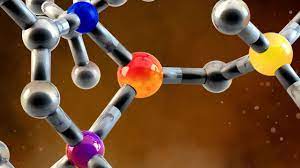Chemical reactions are central to almost every industry today, thus there is a need to understand what you can do to optimize such processes and get the best results during production. One of the most effective and reliable ways to optimize chemical reactions is to speed them up using catalysts, but what are these magical substances?
That’s what this article is all about, so read on to learn more.
What Are Chemical Catalysts?
Chemical catalysts are the substances inside chemical reactors that are designed to accelerate chemical reactions without getting used up in the process. Catalysts can achieve this function primarily by lowering the activation energy (energy required to start a chemical reaction) of chemical reactions.
By offering an alternative pathway with a lower activation rate, the chemical reactions will occur faster and more efficiently.
Chemical catalysts can either be natural or synthetic, and in an industrial setting they are typically precious and less-occurring metals like palladium, alumina, gold, platinum, and nickel. In categorization, you may also hear the words homogenous and heterogenous being used to refer to catalysts.
Homogenous catalysts are the ones that have the same physical phase as the reactants. Heterogenous catalysts, on the other hand, have a different physical phase compared to the reactants.
When all is said and done, teaming up with a top-performing chemical catalyst manufacturing company like Applied Catalysts can help you increase the speed and energy efficiency of your production processes, allowing you to be more sustainable.
Application of Chemical Catalysts
In industrial settings, chemical catalysts are used in:
1. Environmental Applications
Catalysts are being used a lot in processes connected to environmental remediation (ridding the environment of existing pollutants). Additionally, they are used to prevent or reduce the emission of harmful gases to the environment during production processes.
Some of the most common uses of chemical catalysts in environmental applications include the reduction of emissions in stack gas and the treatment of wastewater.
2. Material Synthesis
If you’re in an industry that manufactures plastic products, you are likely familiar with polymerization processes. Chemical catalysts are used in these processes to accelerate production speeds while guaranteeing efficiency.
3. Pharmaceutical Processes
Chemical catalysts are also used in pharmaceutical synthesis, fine chemicals manufacturing, and chiral molecule production (the creation of ions or molecules that are mirror images of one another).
4. Energy/Fuel Production
Chemical catalysts are also being used in energy production processes. One of the more common examples is the use of catalysts in accelerating the energy conversion process (oxygen reduction reactions) in hydrogen fuel cells.
These catalysts also come in handy in biomass conversion processes. To be more precise, such conversion processes aim to convert biodegradable plant materials into useful products such as green hydrogen and renewable natural gas, thus contributing to sustainable energy solutions.
There You Have It,
Chemical catalysts have proven instrumental to processes in various industries, and there’s a lot of ongoing research to expand their use.
So if you’re in an industry that would benefit from quicker and efficient reactions, it’s a wise idea to team up with a leading chemical catalysts manufacturer like Applied Catalysts to research, design, and develop products that will benefit your production processes.
Apart from this, if you are interested to know more about Tips For Fixing A Slow Draining Kitchen Sink then visit our Education category.








